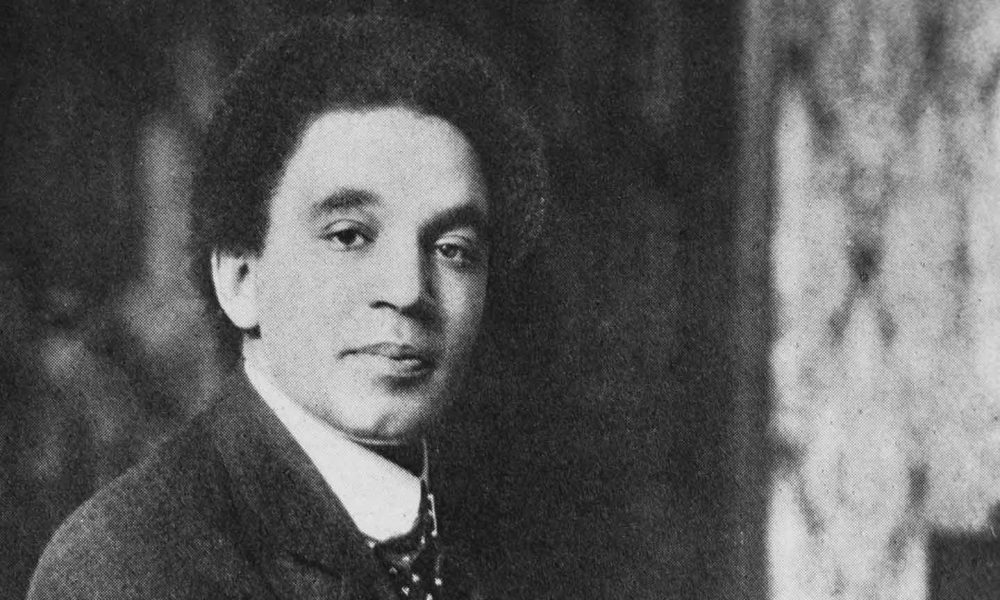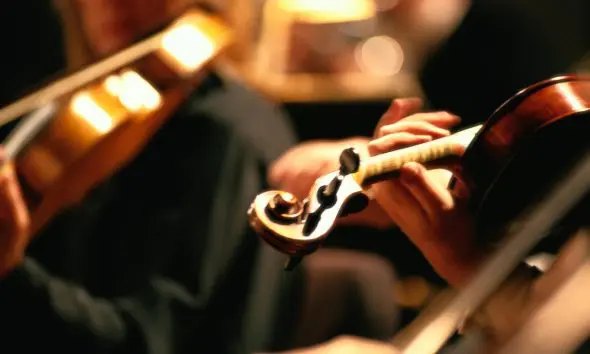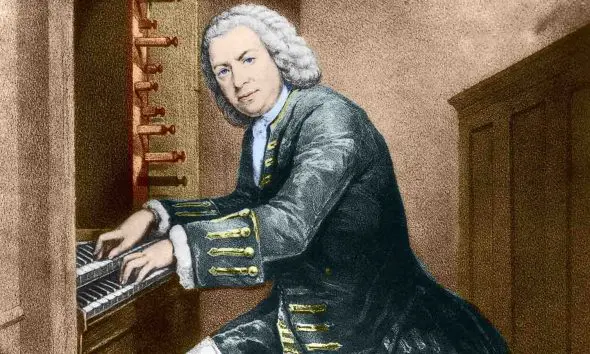Best Black Classical Composers Of All Time
Discover our selection of the best Black classical composers of all time including Florence Price and Samuel Coleridge-Taylor.

The history of Western music tells an enthralling story of musical genius, virtuosity, and unparalleled artistic expression. Nevertheless, it is a story that stars only a select few, and the canon is currently being criticized for this very reason. So, why not expand it? Why not include the countless artists, composers, and musicians who have been marginalized for their race or gender, those figures whom history has previously left behind? Why not make space in our concert programmes and our CD collections for the voices that went unheard, the scores that remain unpublished, and the music that has remained unperformed? Undoubtedly, our musical lives will be all the richer for it. Scroll down to discover our selection of the top 10 best Black classical composers of all time.
Listen to Florence Price’s Symphonies Nos. 1 & 3, performed by The Philadelphia Orchestra conducted by Yannick Nézet-Séguin, on Apple Music and Spotify.
Joseph Bologne, Chevalier de Saint-Georges (1745 – 1799)
Living in pre-Revolutionary France, Joseph Bologne was a Gentleman of the King’s Chamber, serving King Louis XV (hence his noble title, ‘Le Chevalier de Saint-Georges’). Bologne, one of the best Black classical composers, initially made a name for himself as a violin virtuoso by debuting his own works, among them a set of fierce and complex violin concerti, symphonies, and symphonie concertantes. His concerts were frequented by Queen Marie Antoinette, and in 1775, he was appointed director of the Paris Opéra. Bologne went on to write six of his own operas, most notably L’Amant Anonyme (The Anonymous Lover) which premiered in 1780.
George Bridgetower (1778 – 1860)
George Bridgetower was a child prodigy who became an international violin sensation at a young age. In 1803 Bridgetower performed for Ludwig van Beethoven in Vienna, and he was so impressed that he composed his ‘Kreutzer’ Sonata, notoriously one of the most complex, demanding sonatas in the repertoire, for the young violinist and dedicated the work to him. Sadly, following a spat between Beethoven and Bridgewater, his name was erased from the score and, with it, his place in the history books. Bridgetower was also a composer in his own right and studied with Joseph Haydn. Unfortunately, many of his works have been lost, but a few treasures survive, such as his Diatonica Armonica, for piano, and Henry: A Ballad for Medium Voice and Piano.
Francis Johnson (1792 – 1844)
Francis Johnson, one of the best Black classical composers, is another figure whose invaluable work is still being uncovered today. He is often credited as the forefather of jazz and ragtime. An outstanding violinist and bugle player, Johnson led a celebrated military band with whom he toured Europe and even performed for Queen Victoria. Johnson was the first Black American composer to have his many compositions published as sheet music. During his prolific career, he composed over 300 musical works covering the whole gamut, including ballets, operas, marches, ballroom music, and dances.
Samuel Coleridge-Taylor (1875 – 1912)
A first-rate composer, conductor, poet, and political activist, Coleridge-Taylor attended the Royal College of Music at just 15 years of age. Under the tuition of Charles Stanford, he developed a vivid, romantic compositional style. Highlights from his oeuvre include the beautiful Ballade in A Minor for orchestra, the moving Symphonic Variations on an African Air, the epic cantata trilogy The Song of Hiawatha, and Deep River, which has recently been beautifully reimagined by the brilliant cellist, Sheku Kanneh-Mason.
Florence Price (1887 – 1953)
In 1933 the Chicago Symphony orchestra debuted Symphony No. 1 in E Minor by Florence Price; it was the first time a major orchestra had performed a symphony by an African American female composer. Despite Price’s vast back catalogue, covering everything from large-scale choral works to sonatas, many of her treasured works are still being uncovered, and only a few have ever been recorded. Of these, Piano Sonata in E minor is a particular highlight, demonstrating Price’s moving lyricism and compositional flair.
William Grant Still (1895 – 1978)
The music of William Grant Still is a brilliant combination of experimentalism, blues, and jazz, which he honed under the tuition of the avant-garde composer, Edgard Varèse. Like Florence Price, Still was the first male African-American composer to have a symphony performed by a professional orchestra in America (the spectacular Symphony No. 1, subtitled ‘Afro-American’) and to have an opera produced by the New York City Opera. Over his lifetime, Still built up an impressive back catalogue of over 200 works in nearly all genres. In 1999 he was inducted into the Mississippi Musicians Hall of Fame.
George Walker (1922 – 2018)
One of the greatest American composers of all time, George Walker’s music is a synthesis of musical styles and creative influences. His trademark compositional style is a fusion of jazz, blues, classical, and popular musical elements. In some works, he took inspiration from church music (Music for Brass, Sacred and Profane); in others, he explored serialism and bitonality, such as the 1960 solo piano composition Spatials. Walker, one of the best Black classical composers of all time, won many scholarships and awards throughout his career, most notably for becoming the first African American to win the Pulitzer Prize for Music for Lilacs, a mesmerizing piece for voice and orchestra.
Julia Perry (1924 – 1979)
Julia Perry studied composition with Luigi Dallapiccola, Nadia Boulanger, and later at the prestigious Julliard School of Music. Her early neo-classical approach to composition was strongly influenced by African American music, whilst her later works exhibit more experimental techniques. Perry was a prolific composer, with 12 symphonies, 3 operas, concertos, and a myriad of other smaller pieces in her oeuvre. Even after a stroke in 1970, Perry continued to compose after teaching herself to write with her left hand. From the pantonal piece Homunuculus, for 10 percussionists, to her stunning vocal works such as Song for Our Saviour and Stabat Mater, Perry’s music is as fascinating as it is brilliant.
Julius Eastman (1940 – 1990)
A composer, singer, dancer, visionary, and innovator, Julius Eastman was an idiosyncratic, Minimalist composer. He was unapologetically himself, stating in a 1976 interview, “What I am trying to achieve is to be what I am to the fullest …Black to the fullest, a musician to the fullest, a homosexual to the fullest.” This unabashed, raw emotion comes through in his music. Eastman wrote music to challenge, and maybe even bait, his audience. The provocative titles of his works tend to border on the outrageous, and the music itself is as eclectic as they are erratic. Take, for example, Femenine from 1974: just four pages of music take, on average, around 70 minutes to perform. Inflammatory? Maybe. Opinion-dividing? Definitely. But ultimately? Astounding. Eastman was a musician ahead of his time. Perhaps audiences weren’t ready then, but we’re ready for him now.
Wynton Marsalis (1961 – )
Wynton Marsalis is a composer, jazz legend, and trailblazer in modern classical music. He has not only been described as one of the greatest trumpeters of all time but has cultivated a unique compositional style that feels fresh and vibrant, imbuing classical music with the rhythms and language of jazz. Marsalis has recorded over 100 albums, received 9 Grammy awards, been named an NEA Jazz Master, been awarded the Louis Armstrong Memorial Medal, and was the first jazz composer to win the Pulitzer Prize for Music for his breathtaking oratorio Blood on the Fields. In 2020 Nicola Benedetti won a Grammy Award for Best Classical Instrumental Solo for her recording of Marsalis’ Violin Concerto and Fiddle Dance Suite, which he composed especially for the world-class violinist.





Mr. Kenneth Farmer
June 13, 2022 at 6:27 pm
Why isn’t Robert Nathaniel Dett on this list?